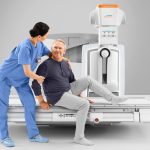Unless you’re a doctor coming from residency or another type of medical practice, it can be challenging to get started as an independent medical professional. There is a lot of regulation in the field and specific steps that need to be followed to get your business up and running. Whether you’re looking to start a new practice or transition into independent practice, here are some tips that should help you get started.
Table of Contents
Get Educated
One of the first steps you’ll want to do when thinking about starting a medical practice is to get educated on the field. There are many different regulatory bodies you’ll need to navigate, and there are many different roles that need to be filled. You’ll want to do your research on each of these so you can start preparing for what’s ahead. You can even take online courses that can help you get a better understanding of the tasks ahead of you, such as medical coding and billing education.
Get the Necessary Licenses and Certifications
You have to get the licenses necessary to practice in your state. Start by researching your state’s health and licensing board to find out which licenses you’ll need to get started. Once you know what’s required, you can submit an application and get the ball rolling. If you’re transitioning from a residency program or another type of practice, be sure to submit your application far enough in advance so that you can get everything processed in time. In many cases, this will require passing an exam or completing a certain amount of supervised experience.
Find a Location
You must carefully consider the location of your medical practice. Commercial real estate can be an expensive option for finding a location, but it comes with some major benefits. Commercial spaces are typically larger and more flexible than smaller options, making them great for all types of businesses. If you’d like to save a bit of money on your office space, co-working spaces can be a great option. Co-working spaces bring together a variety of different businesses under one roof, offering you plenty of networking opportunities and a social environment that’s often missing in traditional business offices.
Build Your Team
Once you’ve found a location for your business and gotten your licenses, it’s time to start building your team and hiring employees. There are a variety of non-clinical positions that you’ll need to fill. The finance and accounting team will be responsible for maintaining your books and managing taxes. The operations team is responsible for managing your day-to-day business operations, payroll, scheduling, and IT. Your HR team will be responsible for hiring new employees, onboarding new hires, and providing support to both employees and managers in your business. Make sure that everyone’s qualified and has the right credentials.
Opening a medical practice is a big undertaking and not something that can be done quickly. The process can be challenging, but it’s also rewarding. With the right strategy and perseverance, you can make your dream a reality.











